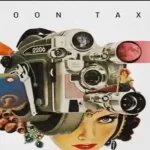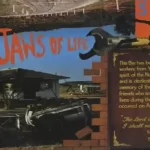✔️ Quick Review
Country music is a genre of music that originated in the Southern United States in the early 20th century. It is often characterized by its storytelling lyrics, acoustic instrumentation, and twangy vocal style.
In the vast realm of musical genres, few have captured the essence of the American experience quite like country music. From its humble origins rooted in folk traditions to the multi-faceted subgenres that grace our ears today, country music has evolved into a cultural phenomenon. This comprehensive exploration delves into the various facets of country music, tracing its origins, growth, and transformation through the ages.
Country Music Songs
Country music is known for its rich repertoire of songs that often tell stories about love, heartbreak, and everyday life. Some of the most iconic country songs include “I Walk the Line” by Johnny Cash, “Crazy” by Patsy Cline, and “Friends in Low Places” by Garth Brooks. These songs resonate with audiences due to their relatable lyrics and emotional depth..
Country Music Artists
Country music has produced numerous talented artists who have left a lasting impact on the genre. From the early pioneers such as Hank Williams and Jimmie Rodgers to contemporary superstars like Luke Bryan and Carrie Underwood, country music boasts a diverse range of performers. These artists contribute to the genre’s evolution through their unique styles and contributions to songwriting.
Country Genres List
The world of country music is a diverse and rich tapestry, woven with a multitude of genres that cater to various tastes and preferences. From the heartfelt twang of classic country to the fusion of contemporary influences, each genre within the country music umbrella contributes to the genre’s dynamic evolution. Here is a comprehensive list of country music genres that have shaped the genre’s history and continue to resonate with audiences worldwide:
Country
- Alternative Country
- Americana
- Australian Country
- Bakersfield Sound
- Bluegrass
- Progressive Bluegrass
- Reactionary Bluegrass
- Blues Country
- Cajun Fiddle Tunes
- Christian Country
- Classic Country
- Close Harmony
- Contemporary Bluegrass
- Contemporary Country
- Country Gospel
- Country Pop (thanks Sarah Johnson)
- Country Rap
- Country Rock
- Country Soul
- Cowboy / Western
- Cowpunk
- Dansband
- Honky Tonk
- Franco-Country
- Gulf and Western
- Hellbilly Music
- Honky Tonk
- Instrumental Country
- Lubbock Sound
- Nashville Sound
- Neotraditional Country
- Outlaw Country
- Progressive
- Psychobilly / Punkabilly
- Red Dirt
- Sertanejo
- Texas County
- Traditional Bluegrass
- Traditional Country
- Truck-Driving Country
- Urban Cowboy
- Western Swing
- Zydeco
Characteristics of Country Music
Country music is a unique genre with a rich history and distinct characteristics that set it apart from other musical styles. Here are ten characteristics commonly associated with country music:

Narrative Lyrics:
Country music often tells stories through its lyrics. The songs focus on various themes such as love, heartbreak, family, rural life, and everyday experiences.
Simple Melodies:
Country music tends to have straightforward and melodic tunes that are easy to sing along to. The melodies are often memorable and resonate with listeners.
Instrumentation:
Traditional country music incorporates a range of instruments such as acoustic and electric guitars, fiddles, banjos, steel guitars, and harmonicas. These instruments contribute to the authentic and recognizable country sound.
Twangy Vocals:
Many country singers employ a distinctive vocal style characterized by a “twang” or a slight nasal quality. This vocal technique is often associated with country music and adds to its distinctiveness.
Themes of Life and Emotions:
Country music explores the emotions and experiences of everyday life, including love, heartache, joy, nostalgia, and resilience. It often reflects the struggles and triumphs of ordinary people.
Connection to Rural Life:
Country music is closely associated with rural and small-town life. Its lyrics frequently depict rural landscapes, farming, nature, and the challenges faced by those living in rural communities.
Honesty and Authenticity:
Country music values sincerity and authenticity. Many country artists strive to connect with their audience by sharing genuine emotions and personal stories through their music.
Cultural Roots:
Country music has deep roots in American folk traditions, including Appalachian music, blues, gospel, and Irish and Scottish folk music. These influences have shaped its sound and lyrical themes.
Diverse Subgenres:
Country music encompasses a variety of subgenres, including traditional country, outlaw country, honky-tonk, bluegrass, country rock, and contemporary country pop. This diversity allows for different styles and expressions within the genre.
Strong Fan Community:
Country music has a passionate and dedicated fan base. Country music enthusiasts often engage in community activities such as attending concerts, festivals, and country line dancing, fostering a sense of camaraderie and shared love for the genre.
Stylistic Origins
The stylistic origins of country music can be traced back to various musical traditions. It draws heavily from folk music, particularly the ballad tradition, which emphasizes storytelling through song. The influence of blues and gospel music is also evident in the emotional depth and soulful delivery found in many country songs. Additionally, country music has been influenced by Western music, Appalachian folk music, and even elements of Celtic music brought by early immigrants.
Cultural Origins
Country music has deep cultural roots in the Southern United States. It emerged as a genre in the early 20th century, drawing inspiration from the musical traditions of rural communities in the South. The songs often reflect the struggles and triumphs of everyday life in rural areas, resonating with audiences who could relate to the themes. Country music has played a significant role in shaping the cultural identity of the Southern states, becoming a symbol of pride and heritage.
Generations of Harmony Unfolding the Eras
First Generation: 1920s
The first generation of country music artists emerged in the early 1920s, featuring trailblazers like Jimmie Rodgers and The Carter Family. During this era, artists like Cliff Carlisle melded country with blues, forging a unique soundscape.
Second Generation: 1930s-1950s
The introduction of the Grand Ole Opry in 1925 marked a watershed moment in country music history. This era saw the emergence of singing cowboys like Bob Wills and Gene Autry, who brought country music to the silver screen. Bob Wills’s experimentation with Western swing, a fusion of country and jazz, showcased his innovative spirit, as he introduced the electric guitar to his band in 1938.
Third Generation: 1950s-1970s
The third generation bore witness to bluegrass maestros like Lester Flatt, Earl Scruggs, and Bill Monroe during the 1950s and 60s. Gospel remained an integral part of the country music tapestry. Honky-tonk, a raw and stripped-down subgenre, gained prominence in Texas and Oklahoma. This era also birthed rockabilly sensations like Johnny Cash and Elvis Presley, while the Nashville sound elevated artists like Patsy Cline and Jim Reeves to unprecedented fame.
Fourth Generation: 1970s-1990s
The 1970s and 1980s welcomed outlaws such as Willie Nelson and Waylon Jennings, along with country-pop icons like John Denver and the distinctive Bakersfield sound of Buck Owens. Dolly Parton’s crossover success exemplified the era’s adaptability, as country disco briefly emerged before a return to the genre’s roots. This resurgence ushered in artists like George Strait, maintaining the authenticity of country sound.
Fifth Generation: 1990s
The 1990s showcased the worldwide triumph of neo-traditionalists like Alan Jackson, stadium country acts like the Dixie Chicks and Garth Brooks, and a surge of female country music artists including Reba McEntire, Shania Twain, and more. The era’s influence even sparked a revival of line dancing, underscoring country music’s global reach.
Sixth Generation: 2000s-Present
The sixth generation carries country music into the present day with a fusion of genres, incorporating rock, pop, and hip-hop elements. Artists like Lady Antebellum, Taylor Swift, and Florida Georgia Line exemplify the genre’s evolution. Country music remains an ever-evolving entity, capturing the spirit of each era while forging ahead with new sounds and narratives.
Frequently Asked Questions:
What is the history of country music?
Country music has its roots in the early 20th century and evolved from various musical traditions in the Southern United States, such as folk, blues, and gospel music. It gained popularity through radio broadcasts and has since become a globally recognized genre.
Who is considered the father of country music?
Jimmie Rodgers, often referred to as the “father of country music,” was one of the genre’s earliest and most influential artists. His unique blend of folk, blues, and country elements laid the foundation for the development of country music.
How has country music influenced other genres?
Country music has influenced numerous genres, including rock and roll, pop, and even hip-hop. Artists from different backgrounds have incorporated country elements into their music, leading to the emergence of crossover hits and new sub-genres.
Is country music only popular in the United States?
While country music originated in the United States, it has gained popularity worldwide. Many countries have their own variations of country music, and artists from outside the United States have achieved success in the genre.
What are some common themes in country music lyrics?
common themes in country music lyrics include love, heartbreak, family, nostalgia, and the rural way of life. These themes resonate with listeners and evoke strong emotions, contributing to the genre’s enduring popularity.
How has country music evolved over the years?
Country music has evolved significantly over the years, incorporating elements from other genres and embracing new sounds and styles. The genre has expanded its reach, attracting a diverse audience and reflecting the changing times.
Who are some notable female country music artists?
There have been many notable female country music artists throughout history, including Patsy Cline, Dolly Parton, Loretta Lynn, Shania Twain, and Miranda Lambert. These artists have made significant contributions to the genre and have achieved great success.
Conclusion
Country music is a genre that has captured the hearts of millions of people around the world. Its storytelling lyrics, heartfelt melodies, and distinct sound have made it a timeless and beloved form of music. From its humble origins in the Southern United States to its global reach today, country music continues to evolve and inspire new generations of artists and fans alike.








